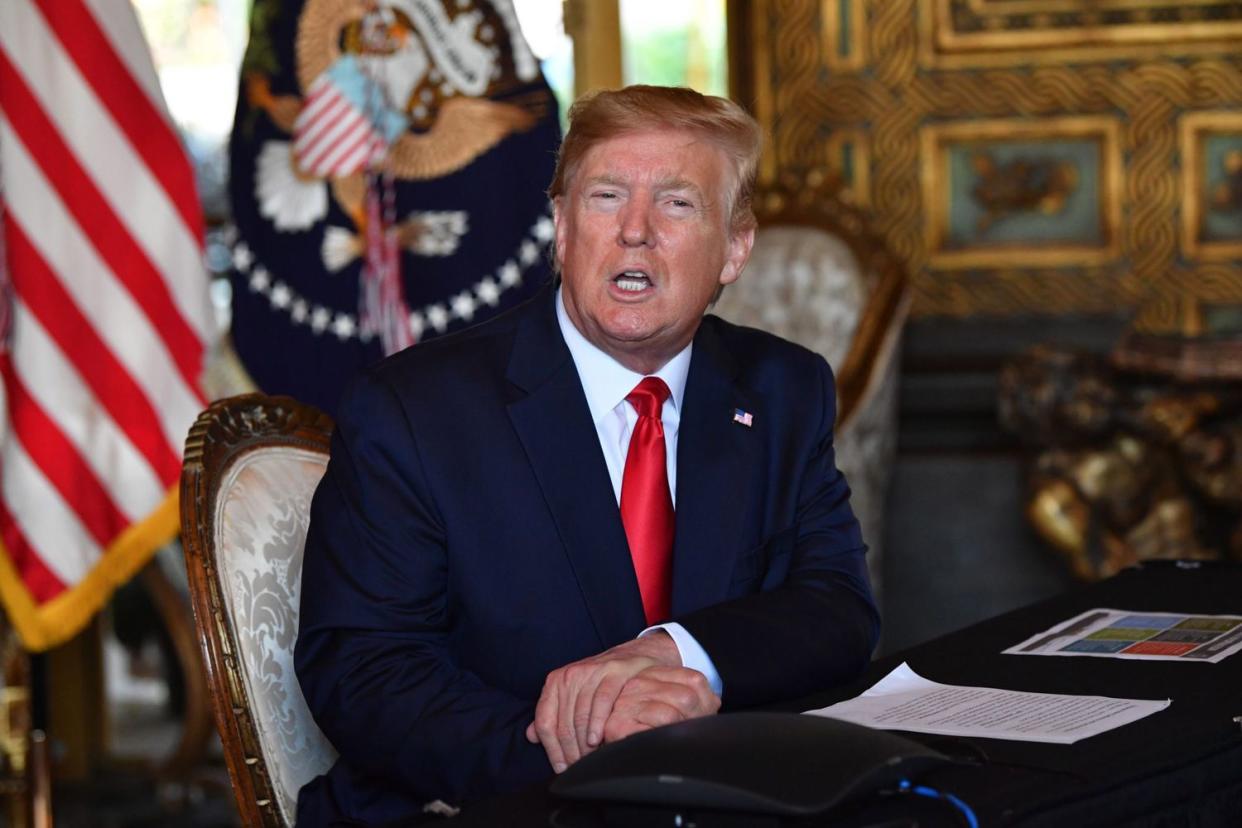Mar-a-Lago Affidavit Is Unsealed with Redactions — 38 Pages of Background Establish Probable Cause for Search

- Oops!Something went wrong.Please try again later.
NICHOLAS KAMM/getty Former President Donald Trump
The affidavit used to procure a search warrant of former President Donald Trump's Mar-a-Lago residence has been unsealed with redactions, one day after a Florida judge ordered its release.
In the 38-page document, reviewed by PEOPLE, a case is made for why there was probable cause "to believe that evidence, contraband, fruits of crime, or other items illegally possessed" would be found on the Mar-a-Lago premises. A significant portion of that case is blacked out to protect the investigation and the people involved, revealing little more than what was previously reported.
Within the affidavit, a special agent involved in establishing probable cause laid out four main objectives of the criminal investigation: to determine how the classified documents and records handed over to the National Archives earlier this year came to be stored at Mar-a-Lago in the first place; to determine whether the storage locations at Mar-a-Lago were authorized storage locations for classified information; to determine whether there are additional classified documents or records being stored in unauthorized locations; and to identify who may have been responsible for removing or storing classified information without proper authorization.
The affidavit says that previous documents handed over from Mar-a-Lago "appear to contain National Defense Information." It also argued that agents had reason to believe they would find more National Defense Information if they obtained permission to search Mar-a-Lago themselves, and that they anticipated finding evidence of obstruction of justice.
Judge Bruce E. Reinhart, who signed the warrant that authorized the FBI's Aug. 8 search at Mar-a-Lago, mandated that the affidavit be made public by noon on Friday, hoping that it would justify to the public why investigators needed to visit Trump's Palm Beach, Florida, resort in person to retrieve documents.
Before moving to unseal the affidavit, Reinhart allowed the Department of Justice to propose redactions in order to protect witnesses from harassment or violence and maintain the integrity of the investigation. In his Thursday order, Reinhart suggested that the DOJ's redaction requests were granted because they were "narrowly tailored to serve the government's legitimate interest in the integrity of the ongoing investigation," The New York Times reports.
In the weeks since the FBI searched the residence of Trump, the public has slowly received more information about what investigators were seeking — and what they collected.
The FBI executed the search amid the National Archives' attempt to recover documents that were believed to be stored at Mar-a-Lago, which is where he returned after leaving the White House at the end of his presidency. Days later, the search warrant and property receipt from Aug. 8 were publicized, revealing that the FBI was looking to gather anything that might show Trump, 76, removed or destroyed records, obstructed justice or violated the Espionage Act.
Among the materials retrieved were 11 sets of classified documents, including some marked "top secret" that are only meant to be viewed at secure government facilities.
Binders of photos, a handwritten note, unspecified information about French President Emmanuel Macron and an executive grant of clemency for former Trump aide Roger Stone were also listed on the receipt.
Never miss a story — sign up for PEOPLE's free daily newsletter to stay up-to-date on the best of what PEOPLE has to offer.
In the weeks since the FBI's search, far-right Republicans have circulated inflammatory rhetoric intending to discredit the justice system, leading to a slew of violent threats against federal agents.
Attorney General Merrick Garland gave a rare speech on Aug. 11 defending the employees of the FBI and DOJ as "dedicated, patriotic servants."
Garland noted that he personally gave the green light for investigators to seek a search warrant as a last resort in their probe into Trump's handling of documents, adding that while Trump is entitled to the presumption of innocence, he is not above "due process of the law."

